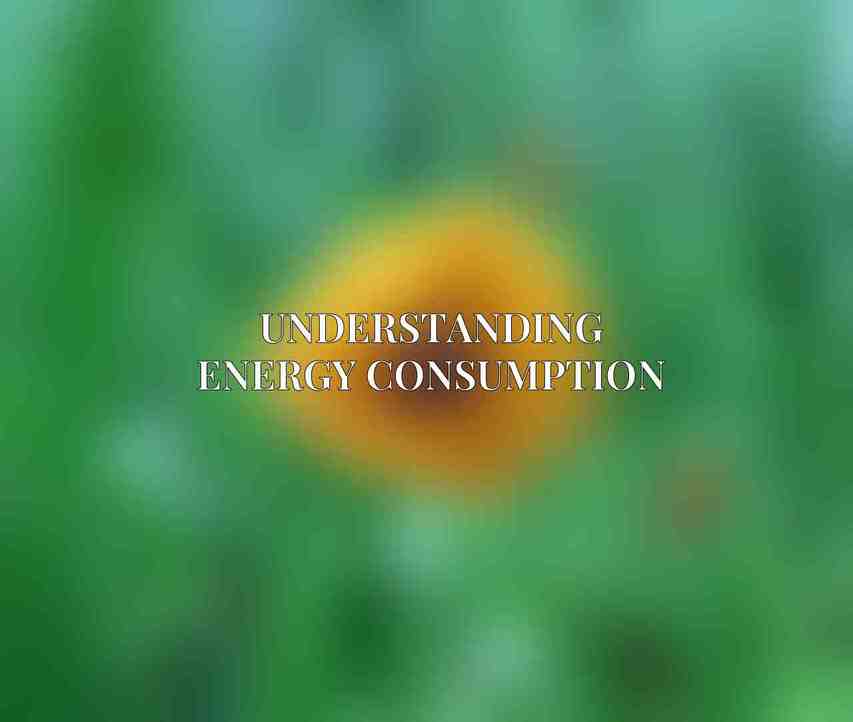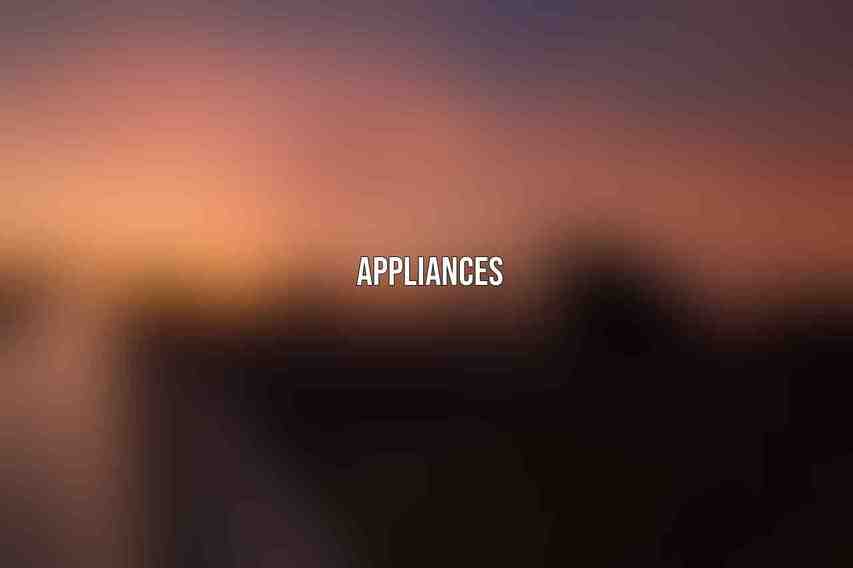Energy conservation is a crucial aspect of sustainable living, and implementing energy-saving measures in your home can not only reduce your utility bills but also contribute to a greener environment. In this comprehensive guide, we will explore the ultimate energy-saving tips for your home, covering various aspects from understanding energy consumption to utilizing smart home devices.
Understanding Energy Consumption

When embarking on the journey to save energy in your home, it is essential to first understand how and where energy is being consumed. By identifying energy hogs, measuring energy usage with smart meters, and analyzing energy bills, you can gain insights into your consumption patterns and make informed decisions on where to focus your energy-saving efforts.
Lighting
Switching to LED and CFL Bulbs
One of the most effective ways to save energy in your home is by switching to energy-efficient LED and CFL bulbs. These bulbs not only last longer but also consume significantly less energy than traditional incandescent bulbs. By understanding the benefits and specifications of LED and CFL bulbs and calculating energy savings, you can make a significant impact on your electricity usage.
Utilizing Natural Light
Maximizing natural light in your home can also contribute to energy savings. By optimizing window size and orientation and employing reflective surfaces, you can reduce the need for artificial lighting during the day, further lowering your electricity consumption.
Installing Light Sensors
Integrating light sensors in your home allows for automated lighting control, ensuring lights are only in use when needed. By exploring the types of light sensors available and understanding the benefits of automated lighting control, you can enhance energy efficiency within your living spaces.
Appliances

Selecting Energy-Efficient Appliances
When purchasing new appliances, opt for energy-efficient models with high energy ratings and labels. By comparing appliance efficiency ratings and understanding the energy consumption of different devices, you can make informed choices that align with your energy-saving goals.
Optimizing Appliance Usage
In addition to choosing energy-efficient appliances, it is essential to optimize their usage for maximum efficiency. Simple practices such as unplugging appliances when not in use, washing clothes in cold water, and utilizing energy-saving cycles on dishwashers can lead to tangible energy savings.
Replacing Old Appliances
Replacing outdated appliances with energy-efficient models can result in significant long-term savings. By calculating the cost benefits of new appliances and exploring disposal and recycling options for old ones, you can upgrade your home with sustainable and energy-saving solutions.
Heating and Cooling
Insulation and Air Sealing
Proper insulation and air sealing are key components of an energy-efficient home. By understanding the different types of insulation, their benefits, and techniques for air sealing, you can create a more comfortable living environment while reducing heating and cooling costs.
Smart Thermostats
Integrating smart thermostats into your heating and cooling systems offers precise temperature control and energy savings. Explore the features and benefits of different smart thermostats to optimize your home’s energy consumption and lower utility bills.
Energy-Efficient Windows and Doors
Investing in energy-efficient windows and doors can improve insulation and reduce heat transfer. By understanding the types of energy-efficient options available and their insulation properties, you can enhance your home’s energy efficiency.
Air Conditioning and Heating System Maintenance
Regular maintenance of your heating and cooling systems is essential for their optimal performance. By prioritizing routine maintenance tasks and troubleshooting common issues, you can ensure that your systems operate efficiently, saving energy in the process.
Water Heating
Installing Low-Flow Fixtures
Switching to low-flow fixtures in your bathrooms and kitchen can significantly reduce water consumption. By exploring the types of low-flow fixtures available and estimating water savings, you can conserve both water and the energy used to heat it.
Insulating Water Heaters
Insulating your water heater helps retain heat, reducing the energy required to maintain hot water temperatures. Learn about the benefits and costs of insulating water heaters, as well as the types of insulation materials suitable for this purpose.
Setting Water Heater Temperature
Adjusting your water heater temperature to the optimal level is a simple yet effective way to save energy. Follow instructions to set the water heater temperature correctly, ensuring efficient operation and minimizing energy waste.
Smart Home Devices
Energy Monitoring Systems
Implementing energy monitoring systems in your home provides real-time insights into your energy consumption. By exploring the types and features of these systems, along with the benefits of tracking energy usage in real-time, you can make informed decisions to optimize efficiency.
Voice-Activated Assistants
Utilizing voice-activated assistants for energy management offers convenience and control. Discover how these assistants can help streamline energy-saving efforts, including their compatibility with various devices and the features they offer for efficient home automation.
Automated Energy-Saving Routines
Creating customized energy-saving schedules through smart home automation can streamline energy efficiency. By integrating automated energy-saving routines with smart home hubs, you can optimize energy consumption based on your lifestyle and preferences.
Other Energy-Saving Tips
Energy-Efficient Gardening
Incorporating energy-efficient practices into your gardening routine can further enhance your sustainability efforts. From choosing drought-tolerant plants to utilizing rainwater collection systems, there are various ways to conserve energy in your outdoor spaces.
Energy-Conscious Cooking
Practicing energy-conscious cooking habits can lead to significant savings in your home. By utilizing appliances such as slow cookers and pressure cookers, as well as minimizing oven usage, you can reduce energy consumption in the kitchen.
Energy-Saving Laundry Habits
Optimizing your laundry habits can also contribute to energy savings. Adjusting washing machine settings for efficiency and air-drying clothes whenever possible are simple yet effective ways to minimize energy usage in your home.
implementing these ultimate energy-saving tips in your home can not only reduce your environmental impact but also lead to long-term cost savings. By addressing energy consumption across various aspects of your household, you can create a more sustainable living environment for yourself and future generations.
Frequently Asked Questions
What are some easy ways to save energy at home?
Some easy ways to save energy at home include turning off lights when not in use, using energy-efficient appliances, sealing windows and doors to prevent drafts, using programmable thermostats, and unplugging electronics when not in use.
How can I reduce my water heating costs?
You can reduce your water heating costs by lowering the temperature on your water heater, using less hot water, insulating your water heater and hot water pipes, and considering a more energy-efficient water heater.
What are some tips for saving energy on heating and cooling in my home?
To save energy on heating and cooling, you can use a programmable thermostat to adjust temperatures when you’re away or sleeping, seal any air leaks in your home, add insulation to keep hot or cool air from escaping, and properly maintain your heating and cooling systems.
What are some energy-saving lighting options for my home?
To save energy on lighting, you can switch to LED light bulbs, use dimmer switches to adjust light levels, take advantage of natural light during the day, and turn off lights in empty rooms.
How can I make my kitchen more energy-efficient?
To make your kitchen more energy-efficient, you can use energy-efficient appliances, cook with lids on pots to retain heat, keep refrigerator coils clean for better efficiency, use a microwave or toaster oven for small meals instead of the oven, and avoid peeking in the oven while it’s in use to prevent heat loss.

